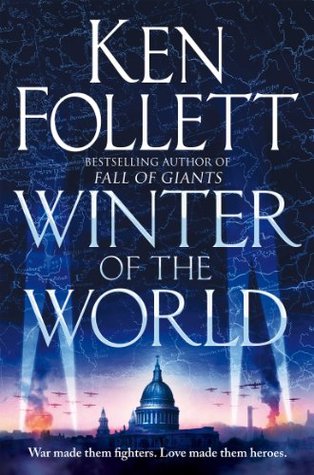More on this book
Community
Kindle Notes & Highlights
Germany cannot live on ideas. People must have bread and shoes and coal.’
It was politics with the gloves off,
The Germans had not had time to develop faith in democracy, Lloyd reflected as the argument surged back and forth between Walter and Gottfried. The Reichstag had been sovereign for only fourteen years. They had lost a war, seen their currency devalued to nothing, and suffered mass unemployment: to them, the right to vote seemed inadequate protection.
Better to suffer evil than to stand by and do nothing.’
In politics, dispassionate argument was overrated, he felt. People should get angry about cruelty and injustice.
The British aristocracy might no longer rule the world, but they had perfected the art of living,
‘You don’t give up on democracy every time you lose a vote,’
Why was it, Lloyd wondered, that the people who wanted to destroy everything good about their country were the quickest to wave the national flag?
Their only sensible option was to give up and go home. But if they had been sensible they would not have been Fascists.
Goodbye, world, Lloyd thought. At least I’ll die fighting Fascists.
‘Mr President, it’s too soon to give up on a peaceful world.’
She looked at him, hoping for a kiss, but he sat still, looking straight ahead through the windscreen, as the rhythmic wipers swept away the relentless rain.
Lloyd felt this was the beating heart of Britain, here in this whitewashed chapel. The people around him were poorly dressed and ill-educated, and they lived lives of unending hard work, the men winning the coal underground, the women raising the next generation of miners. But they had strong backs and sharp minds, and all on their own they had created a culture that made life worth living.
This was what he would be fighting for, these people, this town. And if he had to give his life for them, it would be well spent.
Cleverness had nothing to do with it, and she had no choice. Love was an earthquake.
‘Everything is ultimately the Prime Minister’s fault,’ said Lloyd. ‘That’s what it means to be the leader.’
‘Churchill will be calling for rearmament in Paradise, when the lion lies down with the lamb.’
They could have deposed a tyrant, but they had lacked the nerve. Like the children of a violent father, they feared they could not manage without him.
‘We move by inches, not miles,’ said Gus Dewar with a smile. ‘That’s politics.’
‘A man thought he could fly, so he jumped off the top of a ten-storey building, and as he fell past the fifth floor, flapping his arms uselessly in the air, he was heard to say: So far, so good.’
A woman would always prefer to be remembered than forgotten.
His absence was like an amputation: she felt it every hour of the day.
‘You never used to talk like this. In the old days you wouldn’t discuss politics at all.’ ‘If you don’t take an interest, then what happens is your fault.’ ‘I guess we’ve all learned that.’
Scientists were like this, he knew from Harvard: for them theory was reality, and the world a rather inaccurate model.
‘The Nazis will never admit defeat, of course. So more people will die. Millions more, just because they’re too proud to yield. Insanity. Insanity.’
Woody knew that more than a thousand aircraft were flying over southern England at the same time, and he realized it must be a remarkable sight. It occurred to him that those people were watching history being made, and he was part of it.
‘Mrs Hernandez, you used the word “tragedy” just now. My fiancée, Joanne, died in my arms at Pearl Harbor. My brother, Chuck, was killed by machine-gun fire on the beach at Bougainville. On D-Day I sent Ace Webber and four other young Americans to their deaths for the sake of a bridge in a one-horse town called Eglise-des-Soeurs. I know what tragedy is, ma’am, and it’s not a broken engagement.’
It was strange that in this blasted cityscape the apple and cherry trees were gorgeous with white and pink blossoms, and that in the quiet moments between explosions she could hear the birds singing as optimistically as they did every spring.
‘This is what defeat is like,’ she said. ‘Get used to it.’
‘We’re frightened of freedom.’
I will not be smashed by this, Carla thought. I can live through it. I will be myself again afterwards.
‘Lord, these affairs are hard on the heart.’
It was the usual problem of Soviet government: incompetent but loyal people were promoted into jobs they could not cope with.
German women have to make hard choices. We’re paying for the easy choices German men made fifteen years ago.
The sins of the fathers are visited on the daughters.’
Lloyd could not help seeing it more as a beautiful building than as a symbol of oppression. It was both, of course: nothing was simple in politics.
Erik was one of those inadequate people who were so scared by life that they preferred to live under harsh authority, to be told what to do and what to think by a government that allowed no dissent.
Most of all, when she died, she wanted her children to be able to say, as she said of her father, that her life had meant something, and that the world was a better place for it.


